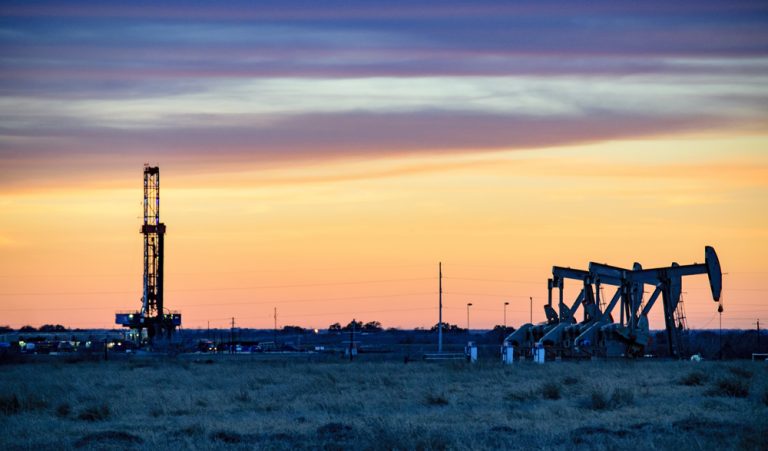

By Bethany Blankley | The Center Square
Texas oil producers paid a record $666 million to the state in oil production taxes in April – the highest amount in history, representing a 99% increase from April 2021.
The monthly amounts of tax revenue paid by the industry in the past two months alone exceed the total amount of revenue the industry has paid for an entire year in previous years, according to new data from the state comptroller’s office.
Natural gas producers paid $339 million in taxes, up 46% from April 2021.
Combined, the oil and natural gas industry paid $1.005 billion in production taxes in April.
In May, oil producers paid $595 million in taxes, an increase of 64% from May 2021. Natural gas producers paid $413 million in taxes, the highest monthly total on record, up 216% from May 2021.
Combined, the industry paid $1.008 billion in production taxes in May.
“The state’s natural gas production tax revenue was an all-time high in May,” the Railroad Commission of Texas, which regulates the industry, said in a statement. “That revenue helps fund education, transportation, and other parts of the state budget.”
If Texas were its own country, it would be the world’s third largest producer of natural gas and fourth largest producer of oil.
In May alone, the Texas Railroad Commission issued 963 drilling permits, it said.
That’s opposite of the Biden administration, which banned new oil and gas leases on federal lands on the president’s first day in office, negatively impacting some states’ revenue and contributing to record high gas prices and 40-year inflation.
Unlike other states where production is dependent on federal leases, oil and natural gas production primarily occur in Texas on privately owned land.
“Tax revenue generated by robust oil and natural gas activity across Texas continues to be a game-changer for Texans, providing billions of dollars in funding for our state’s public schools and universities, roads, first responders, and essential services,” Todd Staples, president of the Texas Oil & Gas Association, said in a statement. “The indispensable role this industry plays in Texas’ continued economic successes underscores the importance of policies that encourage responsible development of our natural resources.
“No one produces the oil and natural gas the world needs in a more environmentally responsible way than American producers, and the lion’s share of that production takes place right here in Texas,” Staples added.
The comptroller’s office published tax revenue the state collected from the industry in April and May of this year.
In fiscal 2021, which ended Aug. 31, oil production tax revenue totaled $3.45 billion, the second highest in Texas history. The industry paid the greatest amount of taxes in fiscal 2019 at $3.89 billion.
Now, the industry is on track to exceed these amounts in fiscal 2022. With three months left in the fiscal year, it’s already paid a record $4.48 billion in taxes.
Natural gas production tax revenue alone, in the first nine months of fiscal 2022, has already exceeded revenue totals of all fiscal years in history as of May by $2.97 billion. The next highest amount of taxes the industry paid was in fiscal 2008 at $2.68 billion.
Employment in the oil and natural gas industry continues to grow, with an average of 3,950 upstream jobs added every month this year. Since the low point in employment in September 2020, 33,400 upstream jobs have been added in Texas, with job growth months outnumbering decline months by 17 to 2.
In fiscal 2021, the industry directly employed over 422,000 Texans with jobs that pay among the highest wages in the state.
“For every direct job, an additional 2.2 indirect jobs are created elsewhere in the economy, which means you don’t have to be employed by the oil and natural gas industry to benefit from the tremendous economic prosperity and opportunities the industry brings Texas,” Staples said.
These taxes exclude other taxes the industry also pays, including billions in property taxes on all assets producing minerals, in addition to properties housing pipelines, refineries, and gas stations.
The industry also pays billions more in state and local sales taxes, franchise taxes, gross receipts taxes imposed on natural gas utilities and pipelines, and millions of dollars in additional fees imposed by the state.
The San Marcos City Council received a presentation on the Sidewalk Maintenance and Gap Infill…
The San Marcos River Rollers have skated through obstacles after taking a two-year break during…
San Marcos Corridor News has been reporting on the incredible communities in the Hays County…
Visitors won't be able to swim in the crystal clear waters of the Jacobs Well Natural…
Looking to adopt or foster animals from the local shelter? Here are the San Marcos…
The Lone Star State leads the nation in labor-related accidents and especially workplace deaths and…
This website uses cookies.